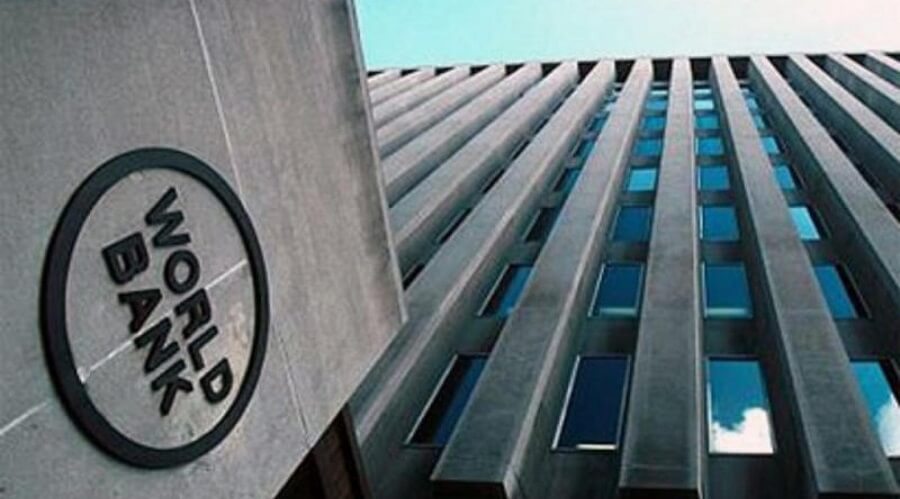Between August 6 last year and May 25 this year, the World Bank Group has approved the sum of $5.74bn for the implementation of six developmental projects in Nigeria.
Details of the projects which were approved by the Bank’s Board was obtained by THE WHISTLER from the World Bank in Abuja.
Advertisement
Out of the approved $5.74bn, only the sum of $2.875bn has been released leaving a funding shortfall of $2.865bn.
The six projects are the Nigeria COVID-19 Preparedness and Response Project which was approved on August 6 last year; Edo Basic Education Sector and Skills Transformation Operation (approved August 25); and the COVID-19 Action Recovery and Economic Stimulus Program which was approved on December 14, 2020.
Others are the Nigeria SFTAS Additional Financing for Covid-19 Response which was approved on December 14, 2020; Nigeria Distribution Sector Recovery Programme where approval was given on February 4 this year; and the Nigeria Sustainable Urban and Rural Water Supply, Sanitation and Hygiene Program-for-Results which was approved on May 25 this year.
Further analysis of the World Bank document showed that the sum of $114.28m was approved by the bank for Nigeria COVID-19 Preparedness and Response Project out of which about $100m has been disbursed.
Advertisement
The project development objective is to prevent, detect, and respond to the threat posed by COVID-19 at state level in Nigeria.
For the Edo Basic Education Sector and Skills Transformation Operation project, the bank approved the sum of $293m for Nigeria out of which about $75m has been released.
The objective of the project is to improve the teaching and learning processes in basic education and expand access to quality digital skills and entrepreneurship development programmes for youth in Edo State.
In the same vein, the World Bank said it approved and released the sum of $750m for Nigeria’s COVID-19 Action Recovery and Economic Stimulus Program.
The bank stated that the development objective of the programme is to expand access to livelihood support and food security services, and grants for poor and vulnerable households and firms.
Advertisement
For the Nigeria SFTAS Additional Financing for Covid-19 Response, the bank approved the sum of $1.965trn.
From this amount, the sum of $750m had been released by the bank for the programme which targets to strengthen the fiscal transparency, accountability and sustainability in the participating states.
In a bid to improve financial and technical performance of the electricity distribution companies, the World Bank gave approval for the sum of $1.743trn from which $500m has been released.
In the area of the Nigeria Sustainable Urban and Rural Water Supply, Sanitation and Hygiene Program-for-Results, the bank also gave approval for the sum of $850m out of which about $700m has been disbursed.
The objectives of the programme are to increase access to water, sanitation, and hygiene services and to strengthen sector institutions in participating states of Nigeria.
The Minister of Finance, Budget and National Planning, Zainab Ahmed had while speaking about the SFTAS programme had said each State of the Federation received the total sum of N1.9bn equivalent of $5m.
Advertisement
Rivers State is the only State that missed out on the grant due to its inability to meet the eligibility criteria which required the states to have passed and published online on a state’s website by July 31,2020 credible, fiscally responsible COVID-19 Responsive Amended 2020 Budgets duly approved by the State House of Assembly and assented to by the State Governor.
According to Ahmed, the Amended 2020 State Budget must also include standardised budget documentation to enhance clarity, transparency and accessibility.
She said, “It must also significantly lower the gross statutory revenue projections – consistent with the revised medium-term expenditure framework and federal government’s budget; reduced non-essential overhead and capital expenditures.
“The budget must be tagged and found to have allocated at least ten percent of the total expenditure of the amended budget for COVID-19 relief, restructuring and recovery programs; and identified credible sources to fully finance the budget deficit to avoid accumulation of arrears”.
Ahmed stressed that the COVID-19 pandemic and the associated economic and fiscal shocks have put significant pressure on States’ fiscal resources and undermined the reality and credibility of the States’ original 2020 Annual Budgets.
She noted that a transparent, accountable and sustainable state-level fiscal/budget framework is a pre-requisite for a robust COVID-19 response, enabling necessary health, social protection and livelihood interventions during the COVID-19 relief, restructuring and recovery phases.
The Minister expressed optimism that the achievement of results by the 35 out of 36 States would further strengthen the national fiscal response to COVID-19 and align efforts at both the federal and state-levels.
She noted that the World Bank-assisted SFTAS Programme is principally meant to strengthen fiscal management at the state level, so as to ensure effective mobilization and utilization of financial resources to the benefit of the citizens in a transparent, accountable and sustainable manner.
She said this would reduce fiscal risks and encourage a common set of fiscal behaviours.
Ahmed observed that the SFTAS programme could not have come at a better time, given the dwindling government revenue occasioned by oil price volatility coupled with the current impact of COVID-19 which has further intensified the need for improved practices in fiscal transparency, accountability and sustainability as enunciated in the SFTAS ideals.



